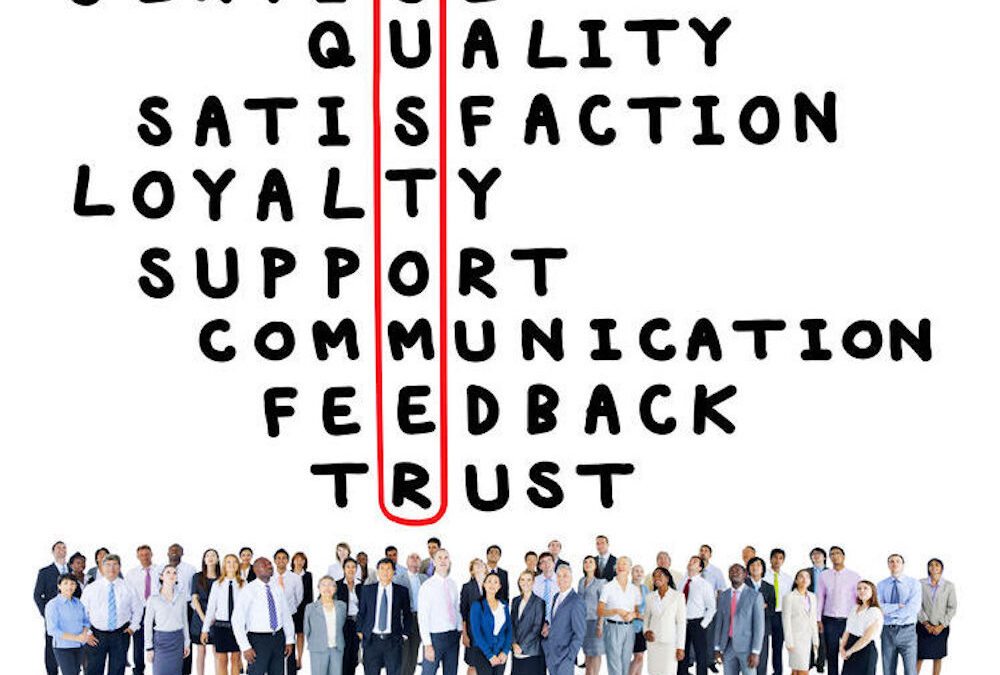
Small Business Strategy: The Importance of Stakeholders
March 24, 2014
Stop Ruining your Business with Social Media
May 14, 2014A few months ago, I heard about a client that was looking to get his newly redesigned website evaluated by a third party. It had been built by a web design company, and it was ready for launch. However, the client had lost faith in the website company that built it. Before the demo site became live, he wanted another company to take a look at it and give him an evaluation. He also wanted the contract reviewed to see if it had been fulfilled in all of the key areas.
It made me think. How can a business alienate a client to the point where the client no longer trusts the company at all? In interactions with clients, I have seen similar situations on more than one occasion. There are common threads to the grievances, and so I thought I would share my experience. Here are three sure-fire ways a small business owners can imperil a valued client relationship.
Over-promise and under-deliver
As a small business grows, client work can come in fits and starts. The temptation is to take any and all projects that come in just to build the business brand. Without thoughtfully considering which project and how much business to accept, a small company can compromise its own performance standards. Taking on too much work has its risks, and the mistake occurs in the service industry as well as manufacturing.
Consider a service example with some anxious homeowners looking to downsize and sell their home. They are hoping to hear the real estate agent, the small business equivalent in our story, say their house is fabulous and the housing market is strong. They want a high selling price for their home and are thrilled when the agent tells them they can list their home at a high price without a problem. As they would like to move quickly, the homeowners are relieved when the agent encourages them to list the house before the busy season begins. Weeks later when there are few interested buyers and no visitors to the open houses, the homeowners feel misled and disappointed. The agent knew what the homeowners wanted to hear, over-promised and then under-delivered.
Ultimately, the homeowners will tell their friends and family about their disappointing experience. The real estate agent will certainly not gain any new clients based upon the homeowner’s word of mouth. In fact, the agent may lose future clients. The risk is clear. In a recent New York Times article about the potency of unfavorable comments, “Praise is Fleeting, but Brickbats We Recall,” Clifford Nass, a professor of communication at Stanford University, confirms, “…almost everyone remembers negative things more strongly and in more detail.”
Don’t establish concrete deliverables
Every project or commitment made to a client has implicit “deliverables.” A deliverable is a product, service or goal that needs to be finished by an agreed date. A lawyer may owe a draft contract for her client’s review. A Chief Financial Officer (CFO) may owe a management report to the head of the company for an internal review. A website designer may owe a page layout proposal to his client. Each person has a deliverable, and without specific deliverables, a project can drift and the timeline to completion lapse.
One aspect of deliverables that is often overlooked is that deliverables go both ways. The lawyer can send the client a contract for review, but the client needs to review it and get back to the attorney in a timely manner. After the CFO provides the head of the company with the management report, the head of the company needs to actually read it and provide relevant feedback. And once the client approves the layout proposal for the website, he needs to write the content to go into the pages so the website can go live. In fact, my company has seen situations where the client does not get to his or her deliverables in a timely manner, and the project shuts down.
The business owner can take the position that it is the client’s fault, but ultimately it is in the small company’s interest to stay on track and remind the client. Otherwise as the project unravels, the customer gets disheartened, the business’ reputation in the market is harmed, and both sides leave the project determined never to work with the other party again.
![]()
Ignore client phone calls or emails
Small business owners have limited dollars and even less free time. Their schedules are hectic as often they juggle multiple roles, particularly in the startup phases of the company. More than once, my company has witnessed clients involved in a project that are no longer being serviced properly in some way. For example, a business owner builds a website with a web design company, but now is in need of some minor upgrades or changes. Because the work is small, it never seems to get done and the client’s calls and emails get ignored. I have personally seen an instance when a client and a company started to disagree on a few matters. Interestingly, in this case the deliverables had fallen by the wayside, and as time progressed, the needs of the client had evolved and were not really covered in the original contract. As the relationship worsened, the company became more and more lax about answering the client’s calls or emails. Eventually, the web design company lost the customer.
Clients are the backbone of any small business. They can grow with your business as their own ventures succeed. They can expand their commitment to a company horizontally or vertically by working across different product areas or expanding within a business line. Satisfied customers give a business referrals which ultimately grow the customer base for the small business even more.
So, don’t fall into the trap of over-promising and then under-deliver. Take the time to plan out and agree on the project timeline and deliverables, and service your clients even when the task at hand is small. Don’t imperil your client relationships; cultivate them and watch your business grow.
If your company is struggling to manage its valuable client base, contact us, and we will help get your project and relationships back on track!




